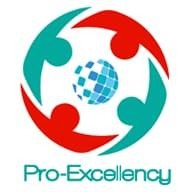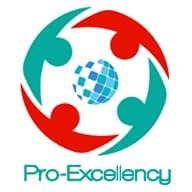Proexcellency
Oracle Apps CRM Online Training
Customer relationship management (CRM) is a complete software system that manages
customer relationships, but it is not a single solution. To effectively manage, analyze, and enhance your customer relationships, you need a comprehensive set of cloud solutions that assist your organization at every customer interaction point.
Different types of CRM:
Operational CRM: An operational CRM streamlines and facilitates a company’s primary business processes. In doing so, it spans marketing, sales, and customer service enabling companies generate leads and convert those leads into contacts. It also allows the customer service infrastructure necessary to delight and retain customers.
Analytical CRM: An analytical CRM system (CRMS) focuses on connected data, analysis, and reporting to enable you to understand your customers.
Collaborative CRM: Selling is a collaborative process, and this does not mean that your marketing team and sales team go on sales calls together. But the marketing and sales data should work cooperatively. A collaborative CRM combines marketing automation, sales force automation, CPQ, and ERP data so that everything works together to close deals and gives each team a clearer picture of customers’ needs and expectations.
Who should use a CRM?
CRM tools have essentially always been seen as sales tools. However, over time, these
solutions have expanded their reach and become integral to marketing, ecommerce, and customer service functions. The power of CRM is derived by constantly gathering customer data, analyzing that data, and then using those insights to deepen relationships and improve business results. It provides any customer-facing employee to convey, "We know you, and we value you." A set of data-driven CRM tools assist you beyond the sales process, which is crucial to business performance. With the deep knowledge of your customers, you can: Offer and sell new, add-on products at the right time in the right way at the right price.Enables customer service teams resolve issues faster. Allows development teams create better products and services.
Purpose of using Customer Relationship Management (CRM):
When your data is organized and managed by a CRM platform, you have a more completes
understanding of your customers, which, in turn, leads to more aligned messaging. Many
activities can be digitized and automated, which enables you target your marketing efforts,
speed sales cycles, and deliver better, more efficient customer service. Finally, with a fully
integrated CRM, data silos are eliminated, making cross-departmental collaboration simple
so that you can present a united front to customers.
Duration
Duration
30-35 hrs
Shipping & Returns
Shipping & Returns
Dimensions
Dimensions
Care Instructions
Care Instructions


